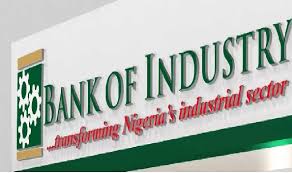The Bank of Industry (BoI) has announced plans to roll out programmes geared towards building the capacities of entrepreneurs to ideate, incubate and launch successful businesses deploying the use of technology hubs.

The Development Finance Institution (DFI) stated that tech hub would provide the platform to productively engage youths in the country, while also creating an ecosystem that would in the near future add to Nigeria’s economic growth.
The Managing Director, BoI, Kayode Pitan, said these programmes would be complemented with funding opportunities through schemes from Bol and other finance institutions.
The BoI boss, who said this at the inauguration of a tech hub in Lagos, by the Governor, Lagos State, Mr.Babajide Sanwo-Olu, explained that the tech hub was a corporate social responsibility (CSR) initiative sponsored by BoI to promote skills development, youth entrepreneurship and job creation in new technology and innovations.
He said: “As the foremost development finance institution in Nigeria, the BoI has the mission to transform Nigeria’s industrial sector by providing financial and business support services to enable new businesses emerge and existing enterprises to thrive. Today’s commissioning of the tech hub is the manifestation of a deliberate programme that the BoI is implementing towards building a dynamic and vibrant start-up ecosystem in Nigeria.”
Trade uncertainty rising in Nigeria, says IMF— The International Monetary Fund has expressed concern over the rise in trade uncertainty in Nigeria and many other economies amid the escalating trade tensions between the United States and China.
The IMF said on Monday that rising trade uncertainty was cited as a driving factor for “sluggish global growth” in the current issue of its World Economic Outlook, which described the state of the world economy. While unveiling a new index that tracks trade uncertainty across 143 countries, the Washington-based fund described the World Trade Uncertainty index as “the first effort to create a trade uncertainty index for a large set of advanced and developing economies.”
The index shows increased uncertainty starting around the third quarter of 2018, coinciding with tariff increases by the US and China. It then declined in the Q4 2018 as both countries announced a deal to halt the escalation of tariffs in December.
It, however, significantly spiked again in Q1 2019 following a substantial expansion of tariffs. “Globally, the trade policy uncertainty index is rising sharply, having been stable at low levels for about 20 years,” the IMF said.
Source; This Day News














